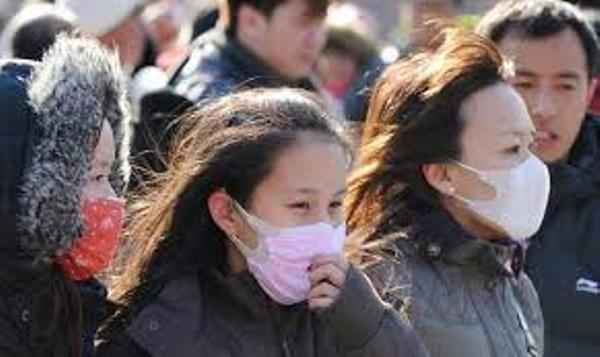Washington: A recent study by environmental health scientists has revealed that inexpensive cloth masks worn by people who hope to reduce their exposure to air pollution vary widely in effectiveness and could be giving users a false sense of security, especially in highly polluted areas.
Researchers believe this is the first study to rigorously test disposable surgical masks and washable cloth masks, which are widely used in Asia and Southeast Asia for personal protection against airborne particulate matter.
Their study shows that “wearing cloth masks reduced the exposure to some extent but the most commonly used cloth mask products perform poorly when compared to alternative options available on the market.”
“This has clear public health risk, especially if an individual makes personal choices not to avoid high concentration environments because they assume they are protected from these contaminants,” Peltier, a researcher stated.
“We found ourselves wondering how effective these masks are. I was shocked that we couldn’t find any research studies investigating them,” he said, while the standard industrial hygiene mask known as the N95 is well tested. But such masks are not readily available in most developing countries, and at $3 or $4 each would be too expensive for most consumers.
On the contrary, reuseable cloth masks cost 10-15 cents and can be washed and worn for months.
In a series of experiments with an experimental mannequin, the researchers tested four masks, one pleated surgical type, two cloth and one cone-shaped cloth with exhalation flaps.
They tested for several variables and effectiveness in filtering out five different synthetic aerosol particle sizes plus three particle sizes of diluted whole diesel exhaust, which simulated real-world conditions.
Among the cloth masks, the one with exhaust valves performed fairly well, removing 80-90 percent of synthetic particles and about 57 percent of diesel exhaust.
Plain cloth masks were “only marginally beneficial”, in protecting people from particles smaller than 2.5 micrometers, often considered more harmful than larger particles because they can penetrate the lungs more deeply.
The least expensive cloth masks removed just 39-65% of standard particles of 30-, 100-, and 500-nanometers, and 1- and 2.5-micrometers. All masks performed worse for diesel combustion particles compared to monodispersed particles, the researchers report.
Cloth masks did offer measurable reduction in particle counts, but results were highly variable. The cloth mask with exhalation valve performed better than those without.
The two worst performing masks performed better for larger particle size, but poorly on the more harmful smaller particle sizes.
“Unfortunately, the least effective two mask types are also inexpensive, reusable and are widely used in developing countries, implying they are a popular consumer choice where pollution mitigation is warranted,” the authors noted.
They found that mask shape and ability to mold to the face boosted effectiveness. The cone-shaped cloth mask and snug-fitting surgical masks performed better than looser-fitting masks.
The study has appeared in the Journal of Exposure Science and Environmental Epidemiology.(ANI)

